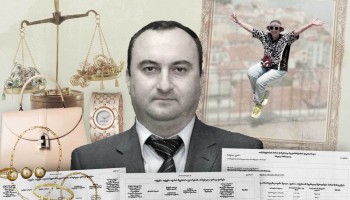Georgia’s State Security Service (SSG) claims that local “criminal actors,” backed by “special services of foreign countries,” plan to disrupt the presidential elections scheduled for Saturday and instigate a “color revolution”—a term describing pro-Western uprisings in Eastern Europe.
The elections take place amid turmoil sparked by the government’s recent decision to halt accession talks with the European Union. The move has provoked violent protests, underscoring the government’s growing unpopularity, as many protesters view it as pro-Russian.
For the first time, the president will be elected by an electoral college dominated by the ruling Georgian Dream party. If their candidate wins, it could further inflame the ongoing anti-government sentiment on the streets of Tbilisi.
International human rights organizations have accused Georgian security forces of violently dispersing protesters and detaining opposition figures.
The SSG announced its discovery of a foreign-backed plot to disrupt the presidential elections in a statement posted on Facebook.
Davit Bragvadze, a national security researcher, said that the “language of the [SSG’s] statement is far from the formal tone expected of an official governmental institution,” which he added “highlights the dire state of our national institutions.”
“All of this is aimed at discrediting the protests and instilling fear among the public,” he said.
Opposition MP Teona Akubardia, who served as deputy secretary of Georgia’s National Security Council from 2014 to 2018, told OCCRP on Wednesday that the SSG’s claims echoed rhetoric previously made by Russian security services.
In August, Russia’s Foreign Intelligence Service accused the United States of preparing a “color revolution” in Georgia by undermining the electoral position of Georgian Dream ahead of the parliamentary elections in October.
The term “color revolution” originally referred to a wave of uprisings in former Eastern Bloc nations, including Georgia’s 2003 Rose Revolution and Ukraine’s 2004 Orange Revolution, which toppled Moscow-leaning regimes in favor of Western-style democracies. However, it has since become a term used by the Russian state to describe alleged Western-backed regime change efforts in neighboring countries.
Georgian Dream, which secured 54% of the October vote, has faced disputes over the election results from the country’s main opposition parties and President Salome Zourabichvili.
Akubardia argued that the SSG’s Facebook statement either served as intimidation tactics or repeated Russian intelligence rhetoric, revealing a shift from prioritizing state security to serving the interests of Bidzina Ivanishvili, the billionaire founder of Georgian Dream.
Speaking to the BBC in November, Zourabichvili vowed to remain in office until a new president is elected through a legitimately constituted parliament. Although elected as an independent candidate in 2018 with Georgian Dream's support, the French-born former diplomat has since accused the government of establishing "one-party rule."
At a media awards ceremony on Tuesday, Zourabichvili accused security services of subjecting the Georgian people to "psychological terror," as reported by RFE/RL’s Georgian service.
Georgian Dream’s presidential nominee, Mikheil Kavelashvili—a former professional footballer—is expected to win the electoral college vote due to the ruling party’s parliamentary majority.






